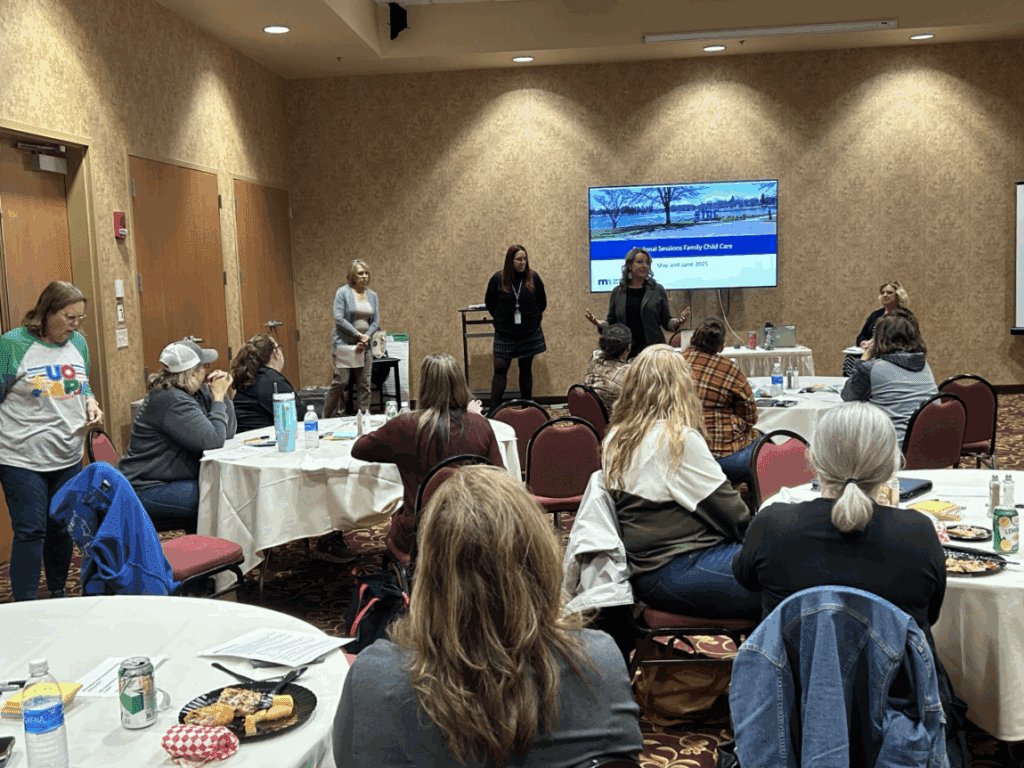


Building on the insights gathered during our initial child care listening sessions, Southwest Initiative Foundation (SWIF) hosted a second round of conversations this year focused on the updated draft of Minnesota’s child care licensing standards. These sessions offered a vital opportunity to review and respond to the Department of Human Services’ (DHS) second draft of proposed regulations. Over 90 child care providers, directors, economic development professionals, employers, parents, child care ecosystem partners, and community leaders shared their insights.
Cheryl Glaeser of Achieve TFC, LLC. facilitated the sessions and developed a summary report in partnership with SWIF to highlight the key challenges noted in the listening sessions, and a summary of recommended changes to the standards.
Next steps
As part of the ongoing Child Care Regulation Modernization Project, this feedback will help shape the third draft of the standards, with a final proposal anticipated for the 2026 legislative session.
- To be notified when the final draft is published, register your email with Department of Children, Youth and Families* by clicking the “Get Involved tab” on the project website.
- Questions or additional feedback can be directed to the project team at [email protected].
- If you have concerns with the contents of the final draft, contact your legislators to advocate for change.
*Effective June 18, 2025, responsibility for family child care and child care licensing, child care center certification, child foster care licensing, and private child-placing agency licensing officially moved from DHS to the newly established Department of Children, Youth and Families (DCYF).
Project background
In 2021, the Minnesota State Legislature allocated federal funding to support regulation modernization projects for licensed child care centers and family child care. DHS contracted with the National Association for Regulatory Administration to develop key indicator systems for inspections, risk-based tiered violation systems, and revised licensing standards.
The first draft of the revised licensing standards was released in April 2024. SWIF conducted a series of listening sessions both in person and virtually to gather regional feedback on the first draft of the licensing standards. More than 150 participants attended, including child care providers, directors, economic development professionals, employers, parents and community leaders.
Key challenges raised during these sessions included excessive documentation requirements, financial and time constraints, lack of flexibility for parental choice, and the need for clearer and more practical guidelines. In addition to feedback on the draft standards, participants offered recommendations to improve the overall feedback and implementation process. A common theme was the strong desire to delay the timeline to allow more time for meaningful provider input to help share realistic, workable standards.
Based on the extensive input received from the child care community, DHS did not propose adoption of the revised child care standards during the 2025 legislative session. Instead, feedback was consolidated and used to inform a second draft of the licensing standards for both licensed child care centers and family child care programs.
Committed to quality, affordable child care
We are a dedicated partner in addressing the child care shortages in our region because we know that access to quality child care is crucial to economic mobility and a vibrant regional economy. Despite the importance of early childhood services, our region has seen a decline in licensed child care centers and family child care providers since 2019.





